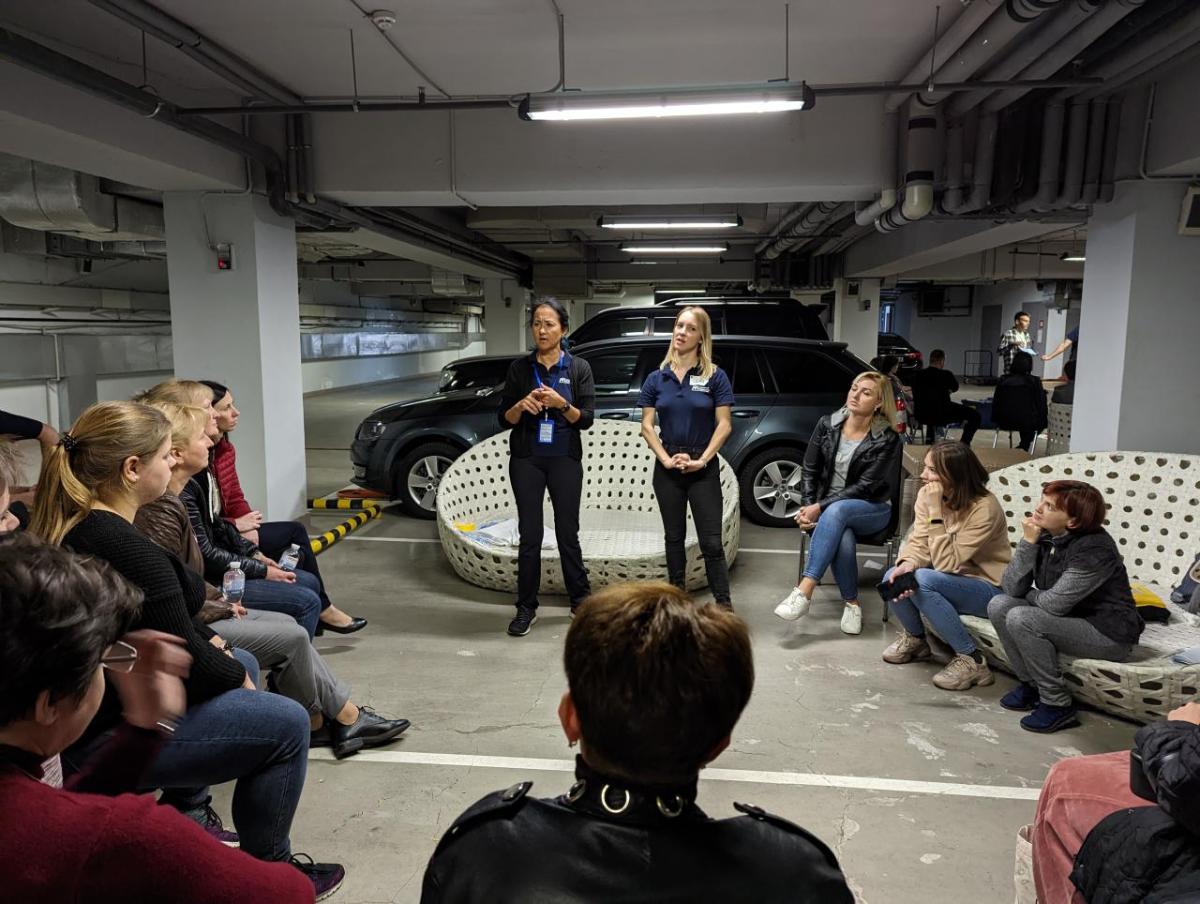Empowering Yvonne With Psychological First Aid Training

Yvonne Groenhout, an intensive-care unit (ICU) nurse for over 26 years and an International Medical Corps first responder, is just one of the thousands of people who have completed and employed the Principles of Psychological First Aid training in their work.
The training, funded by FedEx and developed by International Medical Corps, is available to first responders and other aid workers worldwide. It’s free and available in multiple languages. It’s accessible through this link.
According to the World Health Organization, survivors of conflict and disasters are at higher risk for psychological distress and mental health conditions. This is why International Medical Corps has been a leading advocate for integrating mental health and psychosocial support into emergency response for decades. With supporters like FedEx, International Medical Corps has been able to reach more than 5,000 humanitarians and first responders with essential training on Psychological First Aid (PFA).
PFA is a humane, supportive response to someone who is in distress and may need additional mental health support. International Medical Corps, with FedEx’s support, developed an interactive online training on the Principles of PFA to equip first responders across the globe with the knowledge to effectively respond to an individual’s mental health needs and ultimately help emergency-impacted communities cope and recover stronger.
Yvonne has applied the skills she gained in her PFA training to real-world scenarios. In her own words:
“I was fortunate enough to have been able to take the Principles of Psychological First Aid course as the Delta wave of COVID began in my area. It was here, in my ICU, I was able to recognize the signs and provide some ‘first aid’ through look, listen and link.
“One night I noticed a new RN, very quiet,” Yvonne continues. “She’s young and enthusiastic. It was a bit odd so I asked if everything was ok. One of her patients had died during the day. During the surge that was, unfortunately, a common occurrence. She said she thought maybe she missed something. She was tearful. We stayed in the break room and she spoke about all she had done for the patient. I assured her it sounded like the appropriate course of action. I offered to buddy up with her that night. After the shift I let her know how well I thought the shift went. I told her that COVID is unique and beginning her nursing career during an unprecedented time is probably overwhelming but here she is — doing it!
“I also reminded her that, just like on an airplane, in an emergency, you need to put on your mask and take care of yourself before you attempt to help others.
“And last summer, I deployed with International Medical Corps to Ukraine to provide trauma care training to Ukrainian nurses. A few minutes into one of our lectures, some of the participants began looking uncomfortable. One raised her hand and asked that we stop. She proceeded to explain through the interpreter how upsetting the content was because of all they had experienced. One of the others joined her in expressing her grief. Both explained the trauma they had witnessed in the previous and current conflict. They were both crying. We allowed them to speak without interruption.
“After they were finished, we thanked them for being brave enough to share in a group setting. We thanked them for the sacrifices they were making and emphasized the importance of the trainings, how participants will be able to use the knowledge to assist themselves, their patients and their country.
“We also reminded them of the need to be there for each other.
The Principles of PFA training enabled Yvonne to spot people struggling in the aftermath of an emergency and provide them with the support they so desperately needed.

